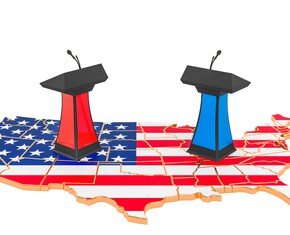The views expressed in our content reflect individual perspectives and do not represent the authoritative views of the Baha'i Faith.
We have to identify and eliminate our internal individual prejudices before we can truly begin to appreciate our diversity.
The first step looks a lot like the first step of any twelve-step program of self-improvement or change: We need to admit that we harbor prejudices.
As babies, we were born without these biases, but it is almost impossible not to acquire them as we grow up in a world riddled with them. America, for example, is saturated with prejudice—racial, religious, class and many other types. If you grew up in the United States, you undoubtedly inherited some of those biases.
All of us have to work to purge prejudice from our hearts. When facing our own prejudices, asking God for forgiveness and assistance in overcoming them can help. It may also be helpful to ask for the capacity to forgive ourselves, for guilt and the fear of it can easily perpetuate a problem if we tend to avoid facing things that engender such feelings. Transformation from one state to another, from discovering and admitting that you have prejudice to working to free yourself from it, is an act of volition.
Perhaps the best choice we can make is to become people who sincerely confront our internal prejudices, rather than people who remain unaccountable to themselves and to the effect that they have on others.
Also, if we live in a social environment that has established traditional boundaries between peoples defined as “us” and “them,” then we are unlikely to appreciate diversity because we do not see it or experience it. Combatting prejudice requires action, not just thought—which means crossing those traditional boundaries society sets up for us.
Today that segregated society can only be maintained by the denial of individuality and the refusal to consider our shared commonality. Unfortunately, this allows us to decide not only who we think someone else is, but to determine how we are going to treat the other person. We make the mistake of defining who another person is according to certain features of their outward appearance, speech, or behavior.
In a segregated society this need not be determined by direct observation, but by merely listening and repeating the pejorative folklore and self-aggrandizing myths circulated by its members. The result is not only a fixed idea but a fixed response—a prepackaged visceral reaction that requires no further information and is signalized by sentiments like: “We know all we need to know” and “No matter what happens, we are not going to change our minds.” A simple reason can often explain such attitudes and responses: We are afraid of the unknown.
Some of us have a deep-seated fear of not knowing what to do or how to respond when we encounter differences in others. We equate this feeling with ignorance, and nobody likes to feel ignorant. We forget, however, that when we encounter others who are different from ourselves, not knowing what to do is exactly the same problem those others have with us. Diversity is a mutual phenomenon. People are not just different from us; people are different from each other:
Consider the world of created beings, how varied and diverse they are in species, yet with one sole origin. All the differences that appear are those of outward form and colour. …
So it is with humanity. It is made up of many races, and its peoples are of different colour, white, black, yellow, brown and red—but they all come from the same God, and all are servants to Him ….
Let us look … at the beauty of diversity, the beauty of harmony. – Abdu’l-Baha, Paris Talks, pp. 51-52.
We may be accustomed to looking at others, but if we stand in the other person’s shoes for a moment, it may be easier to understand how we ourselves are being seen.
Consciously putting ourselves in that situation forms the next obstacle. People sometimes disagree with something or oppose it simply because understanding breaks down barriers, and the fear is that we will become the “other.” If we pause to examine this fear, it is quite illogical. Understanding something doesn’t mean we have to agree with it or become it. Understanding means that we break down barriers so we can appreciate and become acquainted with the varied approaches to life that exist within the human family:
Consider the flowers of a garden: though differing in kind, color, form and shape, yet, inasmuch as they are refreshed by the waters of one spring, revived by the breath of one wind, invigorated by the rays of one sun, this diversity increaseth their charm, and addeth unto their beauty. Thus when that unifying force, the penetrating influence of the Word of God, taketh effect, the difference of customs, manners, habits, ideas, opinions and dispositions embellisheth the world of humanity. This diversity, this difference is like the naturally created dissimilarity and variety of the limbs and organs of the human body, for each one contributeth to the beauty, efficiency and perfection of the whole. When these different limbs and organs come under the influence of man’s sovereign soul, and the soul’s power pervadeth the limbs and members, veins and arteries of the body, then difference reinforceth harmony, diversity strengtheneth love, and multiplicity is the greatest factor for coordination. – Abdu’l-Baha, Selections from the Writings of Abdu’l-Baha, p. 291.
















Comments
Sign in or create an account
Continue with Googleor